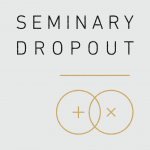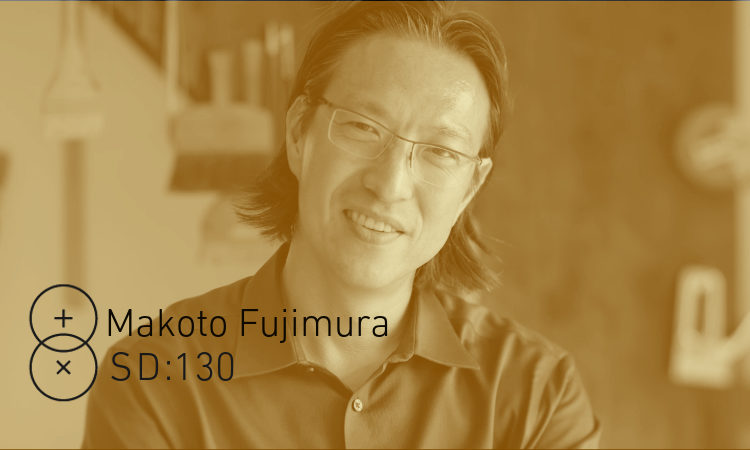
Makoto Fujimura is an internationally renowned artist, writer and speaker who serves as the director of Fuller Theological Seminary’s Brehm Center for Worship, Theology, and the Arts. He is also the founder of the International Arts Movement and served as a presidential appointee to the National Council on the Arts from 2003 to 2009.
His books include Refractions: A Journey of Faith, Art and Culture and Culture Care. Recognized worldwide as a cultural shaper, Fujimura’s work has been exhibited at galleries including Dillon Gallery in New York, Sato Museum in Tokyo, The Contemporary Museum of Tokyo, Tokyo National University of Fine Arts Museum, Bentley Gallery in Arizona, Taikoo Place in Hong Kong and Vienna’s Belvedere Museum.
In 2011 the Fujimura Institute was established and launched the Qu4rtets, a collaboration between Fujimura, painter Bruce Herman, Duke theologian/pianist Jeremy Begbie and Yale composer Christopher Theofanidis, based on T. S. Eliot’s Four Quartets. A popular speaker, Fujimura has lectured at numerous conferences, universities and museums, including the Aspen Institute, Yale and Princeton Universities, Sato Museum and the Phoenix Art Museum. Among many awards and recognitions, Bucknell University honored him with the Outstanding Alumni Award in 2012, and the American Academy of Religion named him as its 2014 Religion and the Arts award recipient. He has received honorary doctorates from Belhaven University, Biola University, Cairn University and Roanoke College.
Silence and Beauty: Hidden Faith Born of Suffering
Shusaku Endo’s novel Silence, first published in 1966, endures as one of the greatest works of twentieth-century Japanese literature. Its narrative of the persecution of Christians in seventeenth-century Japan raises uncomfortable questions about God and the ambiguity of faith in the midst of suffering and hostility. Endo’s Silence took internationally renowned visual artist Makoto Fujimura on a pilgrimage of grappling with the nature of art, the significance of pain and his own cultural heritage. His artistic faith journey overlaps with Endo’s as he uncovers deep layers of meaning in Japanese history and literature, expressed in art both past and present. He finds connections to how faith is lived in contemporary contexts of trauma and glimpses of how the gospel is conveyed in Christ-hidden cultures. In this world of pain and suffering, God often seems silent. Fujimura’s reflections show that light is yet present in darkness, and that silence speaks with hidden beauty and truth. -From the Publisher
Our Beloved Sponsor:

If you liked this episode then you might also like…
Seminary Dropout 128: Soong-Chan Rah, on Prophetic Lament: A Call for Justice in Troubled Times
Seminary Dropout 112: Sara Groves on Depression, and Her New Album FLOODPLAIN
Subscribe/Rate/Review Seminary Dropout in iTunes
*links to guest books or other products are affiliate links



Missio Alliance Comment Policy
The Missio Alliance Writing Collectives exist as a ministry of writing to resource theological practitioners for mission. From our Leading Voices to our regular Writing Team and those invited to publish with us as Community Voices, we are creating a space for thoughtful engagement of critical issues and questions facing the North American Church in God’s mission. This sort of thoughtful engagement is something that we seek to engender not only in our publishing, but in conversations that unfold as a result in the comment section of our articles.
Unfortunately, because of the relational distance introduced by online communication, “thoughtful engagement” and “comment sections” seldom go hand in hand. At the same time, censorship of comments by those who disagree with points made by authors, whose anger or limited perspective taints their words, or who simply feel the need to express their own opinion on a topic without any meaningful engagement with the article or comment in question can mask an important window into the true state of Christian discourse. As such, Missio Alliance sets forth the following suggestions for those who wish to engage in conversation around our writing:
1. Seek to understand the author’s intent.
If you disagree with something the an author said, consider framing your response as, “I hear you as saying _________. Am I understanding you correctly? If so, here’s why I disagree. _____________.
2. Seek to make your own voice heard.
We deeply desire and value the voice and perspective of our readers. However you may react to an article we publish or a fellow commenter, we encourage you to set forth that reaction is the most constructive way possible. Use your voice and perspective to move conversation forward rather than shut it down.
3. Share your story.
One of our favorite tenants is that “an enemy is someone whose story we haven’t heard.” Very often disagreements and rants are the result of people talking past rather than to one another. Everyone’s perspective is intimately bound up with their own stories – their contexts and experiences. We encourage you to couch your comments in whatever aspect of your own story might help others understand where you are coming from.
In view of those suggestions for shaping conversation on our site and in an effort to curate a hospitable space of open conversation, Missio Alliance may delete comments and/or ban users who show no regard for constructive engagement, especially those whose comments are easily construed as trolling, threatening, or abusive.